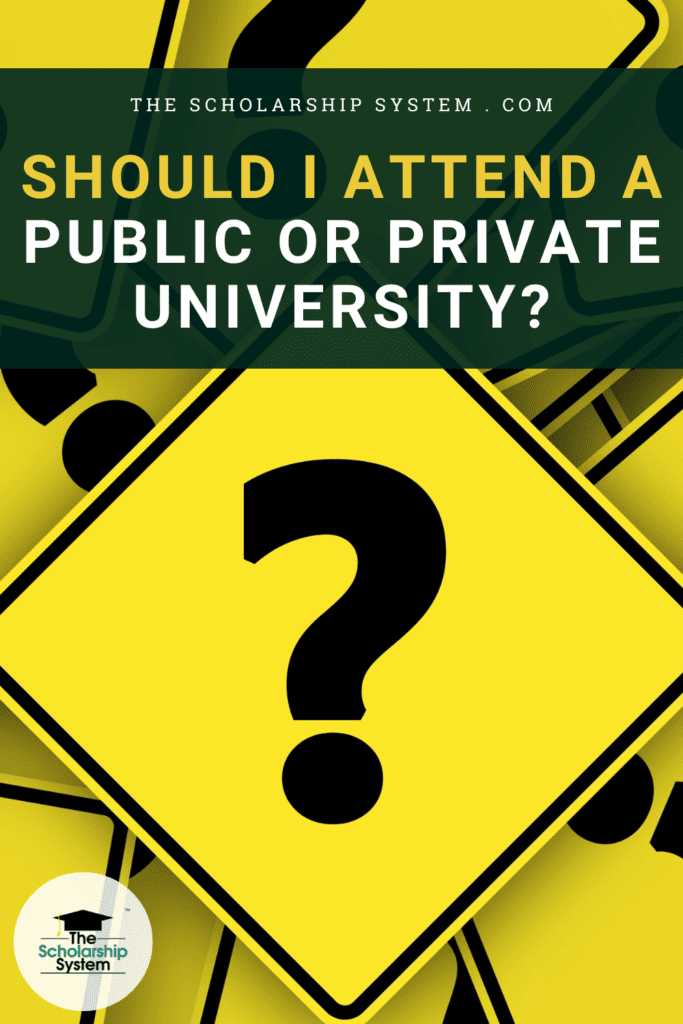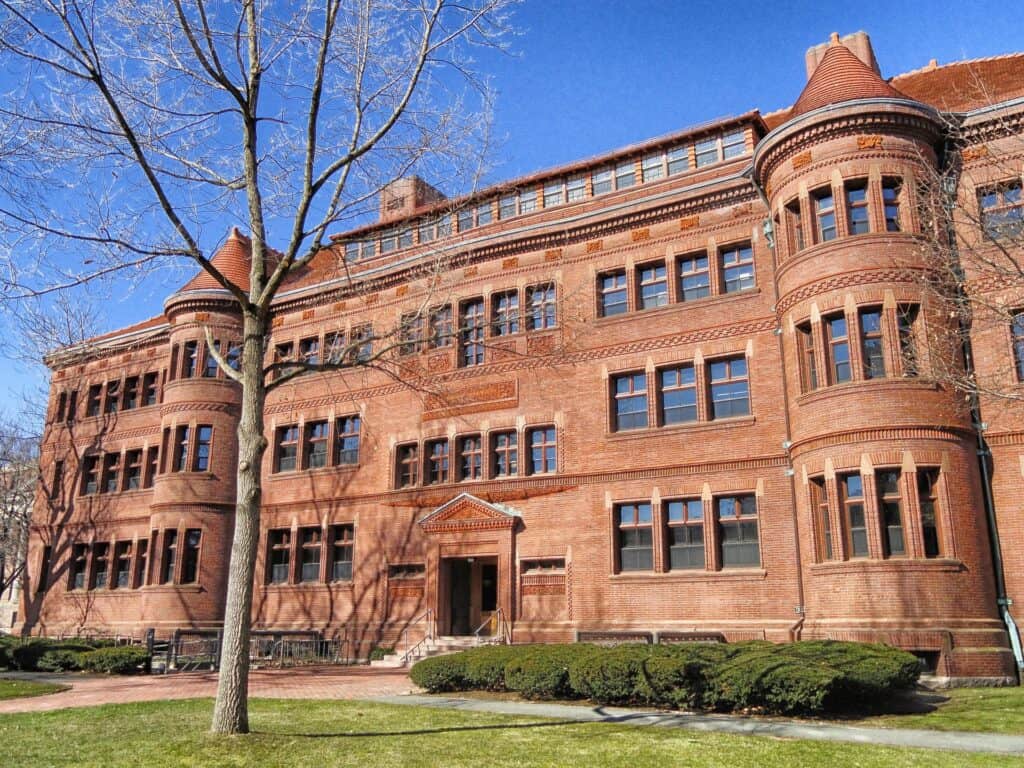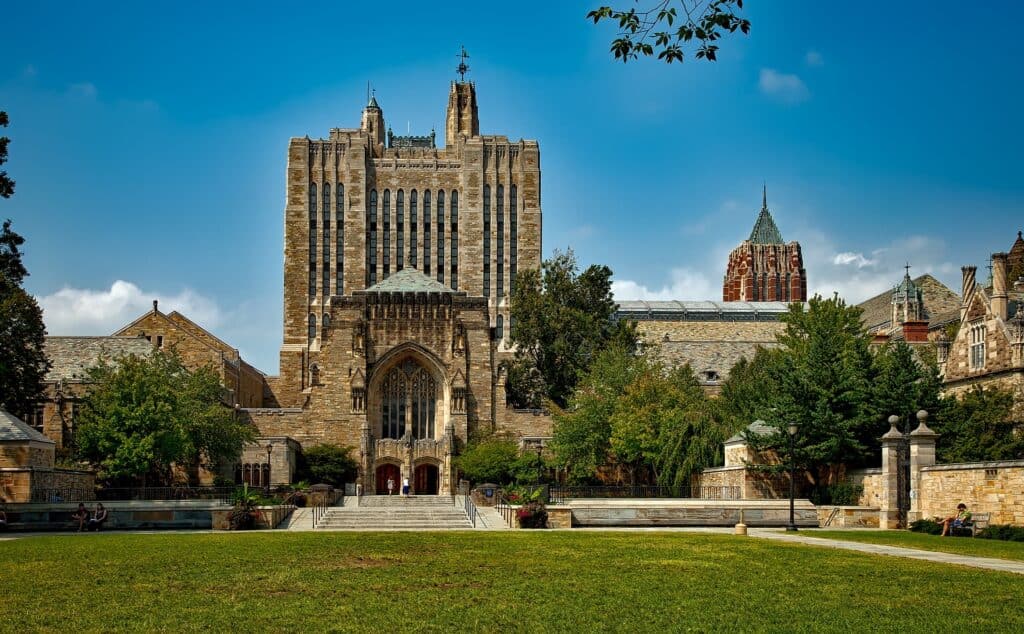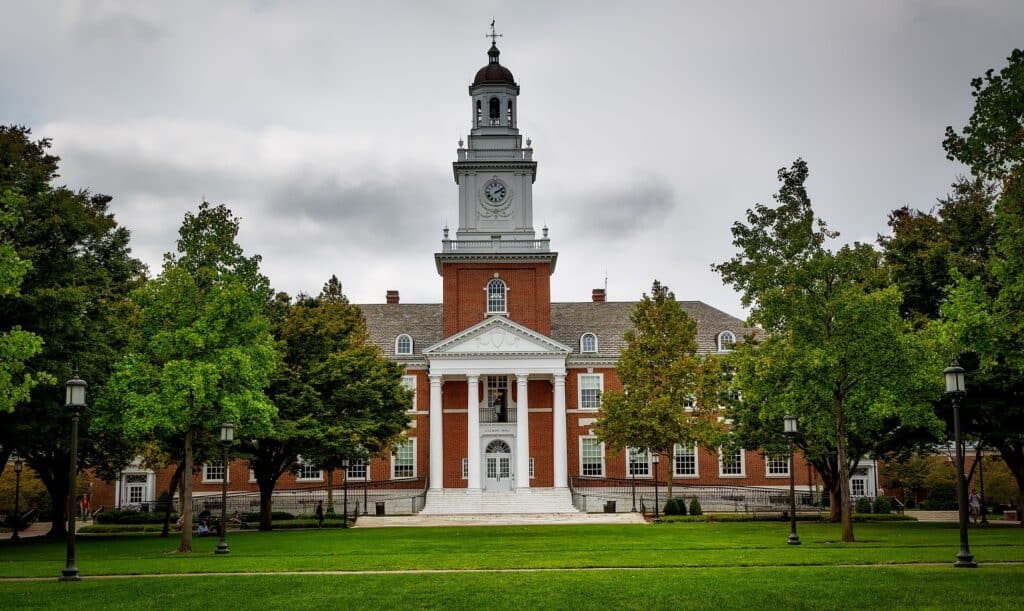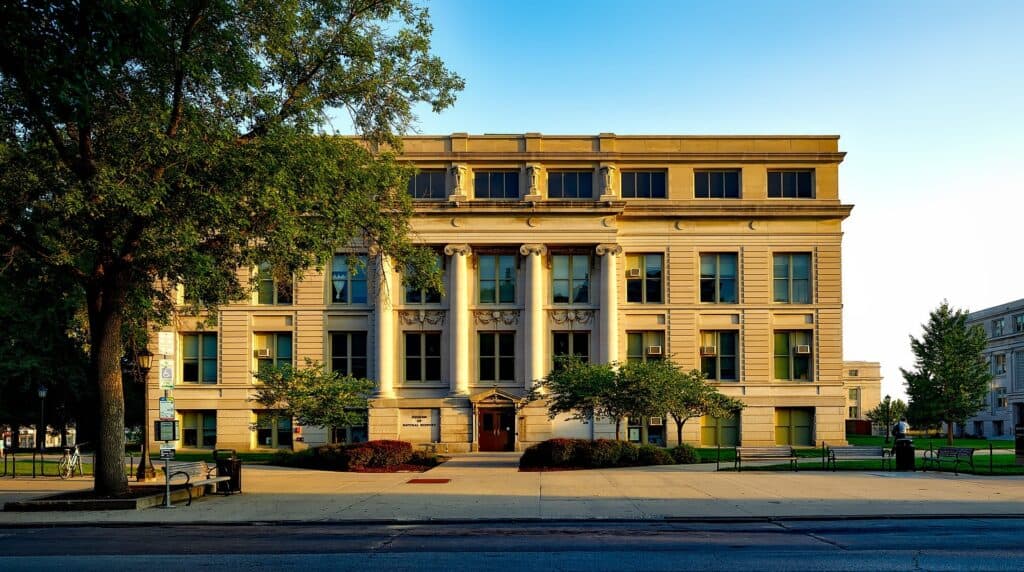When students are exploring their options for college, many end up wondering if attending a public or private university is the best choice. Often, the difference between public and private colleges isn’t immediately clear, as many have similar offerings when it comes to academic programs and overall cultures. However, there’s more to consider in the private vs public university debate, and learning the nuances can make the choice easier to make.
If your student plans on attending a public or a private university, scholarships can make their education far more affordable. If you and your student want to learn about college scholarships, sign up for our free college scholarship webinar! Take a quick trip over to http://thescholarshipsystem.com/freewebinar to reserve a spot today.
Since deciding between a public college or a private university can alter a student’s educational experience, it’s wise to take a close look at the pros and cons, too. If your student is curious about the difference between public and private universities, here’s what they need to know.
Defining Public and Private Universities
First and foremost, public and private colleges and universities are both higher education institutions, typically offering the Bachelor’s or similar degrees that students expect. As a result, the academic is often generally alike in both types of schools.
However, precisely how public and private universities operate from a financial standpoint varies. As a result, how they’re funded is a fundamental defining characteristic that differentiates the two types of schools.
If your student is wondering, “What is a public college?” the public college definition means a school that’s partially funded by a government entity, such as a local, state, or federal government. As a result, tuition and fees are only one source of funds, and that often reduces the burden a college or university must place on students to maintain operations.
In comparison, the private college definition involves schools that don’t have financial help from government entities. Instead, tuition and fees are significant funding sources. However, private colleges and universities can also receive outside support from individuals, private business entities, research funding, or contributions from alumni.
What’s the Difference Between Public and Private Colleges?
The definitions above give students an idea of how public and private colleges differ from an operational standpoint. However, it doesn’t provide clarity regarding how their experience may change by choosing one over the other.
When comparing public vs private university options, it’s typically best to start by exploring the differences in particular areas, particularly those that impact the overall cost of college, the availability of academic programs, and the broader experience. Here’s an in-depth look at the difference between private and public colleges in those categories.
Tuition Fees & Costs
Usually, the most significant difference between private colleges vs public colleges is the cost. Based on data from the 2021-2022 academic year, the average annual tuition costs and fees for attending private institutions were $38,185. For public colleges and universities, the average tuition costs and fees were $10,388 for in-state students, while out-of-state students paid an average of $22,698.
Now, precisely what a student pays can vary depending on what’s in their financial aid package. Often, a student’s FAFSA plays a role in their eligibility for some forms of financial aid, but colleges may also have other incentives that reduce the total cost of attendance. As a result, a higher total cost isn’t necessarily a guarantee that a student’s out-of-pocket expenses are higher.
Campus Size and Culture
When comparing public vs private universities, the overall campus size is typically bigger at public colleges when compared to private ones. The average number of students in attendance each year is larger at public colleges, as well, at least on average. As a result, public universities may seem livelier than their private counterparts.
Degree Offerings
Another key difference when it comes to public vs private colleges is the number of degree offerings. Typically, public colleges and universities will have a broader selection of programs or majors, as their larger populations make supporting a wider range of options easier.
However, while private universities and colleges may have fewer degree offerings, they tend to specialize in specific niches. As a result, more resources focus on the provided academic programs, which is beneficial to students who are explicitly interested in the related majors.
While the difference between public and private college options, as outlined above, is a solid starting point for most students, it’s also wise to take a close look at the pros and cons of public and private colleges. Here’s what they need to know.
What Are the Pros and Cons of a Private College?
Student-to-Teacher Ratio
When it comes to the benefits of attending a private college or university, more favorable student-to-teacher ratios is a significant one. Private nonprofit schools usually have the lowest ratio of students to teachers. As a result, students traditionally have more access to their professors, which does come with advantages.
When the student-to-teacher ratio is lower, individualized instruction is classically a more significant part of the equation. Additionally, if students need guidance outside of what they’re learning in the classroom, a professor may have an easier time providing it.
Demographics and Diversity of Students
Private universities and colleges tend to have greater geographic diversity. It’s common for students to come from across the country to attend these institutions, so many of the students are far from local. In some cases, they may also attract a higher number of international students, particularly if you’re looking at elite nonprofit private colleges and universities. As a result, students may encounter more students who aren’t from the same geographic area as themselves, and that can create learning opportunities.
However, with varying levels of appeal or overall accessibility regarding specific demographic groups, private universities can have less diversity when it comes to race, ethnicity, gender, and socioeconomic class. As a result, while students may come from a wide array of locations, the overall mix may be surprisingly homogenous.
Networking Opportunities
Today, networking is a bit different due to the presence of social media. As a result, the type of college a student attends is less critical to the equation. However, the reputation of some private universities may give students that attend them unique inroads. Similarly, the alumni network may provide more value, as alumni may be more inclined to remain connected to the institution long-term.
What Are the Pros and Cons of a Public College?
Athletics and Extracurricular Activities
Generally speaking, public universities have more to offer in the way of athletics and extracurricular activities. Larger student bodies make it easier to field teams or support a wider array of clubs. As a result, there are often more diverse options when it comes to social or career-building activities.
Demographics and Diversity of Students
With public colleges, you tend to have more diversity when it comes to demographic categories. Generally, these schools are more affordable, which keeps them relatively accessible. Plus, the broader array of programs can attract students from different walks of life, leading to heightened diversity when it comes to race, ethnicity, gender, and more.
However, public colleges tend to have less geographic diversity. Commonly, public universities are most attractive to in-state students, particularly those local to the college. Since that’s the case, the population usually has a smaller percentage of students from other parts of the country or world. However, there are some elite public universities where this isn’t as broadly the case, so it’s critical that students keep that in mind.
Networking Opportunities
As mentioned previously, networking while attending any school is simpler for students due to social media. However, students may have a more manageable time building networks with other students by attending public universities or colleges. Along with more social opportunities, the larger student body could work in their favor, increasing the odds that they can connect with like-minded students who can support them long-term.
How Do I Choose Between Public and Private Universities?
As your student debates public vs private colleges, the main question they’re trying to answer is how to choose between public and private universities. Often, the best approach is to consider the difference and use that information to see if one of the environments better aligns with their needs. Additionally, they should factor in the cost, preferably after financial aid is factored into the equation. By using that strategy, it’s typically easier to see if one is a stronger fit, allowing them to select the best school based on their needs.
Frequently Asked Questions about Public and Private Colleges
Is Public College the Same as Community College?
Often, both public colleges and community colleges receive government funding to support their operations, so they do have a point in common. However, community colleges are traditionally two-year institutions without on-site housing options. With four-year public colleges, they usually offer Bachelor’s degrees and have housing – such as dorm rooms – on-site.
Are Private Colleges Harder Than Public?
When comparing public college vs. private college, the academic rigor doesn’t automatically vary based solely on a school being public or private. As a result, earning a degree isn’t inherently easier at one type of school.
However, securing admittance to a private college is usually more challenging. Private universities have smaller student bodies, so they’re limited on how many students they can admit. Additionally, renowned private colleges often get applicants from all around the country – if not the world – and that can increase the amount of competition.
Is a Public or Private University Better?
When debating between public college vs private college, many students wonder if one option is inherently better than the other. Technically, both types of schools can provide exceptional academic experiences. Additionally, the overall culture can be incredible in either case.
What matters most is that students find the school that best meets their needs. For some, that could be a specific private university. For others, a public college could be the better choice. As a result, which is best is personal, and students should keep that in mind when exploring their options.
If you and your student want to learn about college scholarships, sign up for our free college scholarship webinar! Take a quick trip over to http://thescholarshipsystem.com/freewebinar to reserve a spot today.
The post Should I Attend a Public or Private University? appeared first on The Scholarship System.




